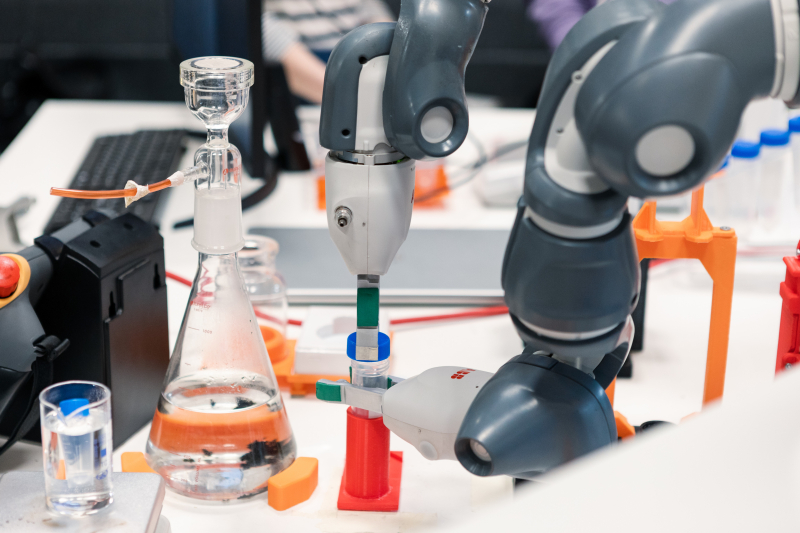Research
Every once in a while, we have to write a news story that sounds like something out of sci-fi. Take this one, for instance: a team from ITMO’s Faculty of Physics has devised a system that “binds and controls particles of light and matter.” Sounds wild, right? And yet, that’s exactly what it does!
The technology, in fact, is a curious middle ground in the race between conventional electronic and novel optical computing: it uses the best of both worlds to create exciton-polaritons (a type of quasiparticle), also known by the charming name “liquid light.” Their applications range from optical computers to various communication networks and infrastructure.
Read more: ITMO Scientists Develop a Device to Control Light and Matter Quasiparticles
***
Bright news! A recent study from the very same Faculty of Physics describes a method of improving the performance of perovskite solar cells. Solar power, though highly useful in autonomous systems – and eco-friendly to boot – has long been associated with the high rate of energy loss during conversion of light into electricity.
The researchers’ use of silicon nanoantennas shows promise: though the increase in efficiency during experiments has not been drastic, what’s remarkable about it is that it was conducted in real-life conditions rather than a sterile lab, as is often required for such systems.
Read more: Solar Cells Made More Efficient Thanks to Silicon Nanoantennas
AI and computing
For the past couple years or so, the world has been abuzz with talk of AI: what can and can’t it do? Will it make this or that profession obsolete? Is it the next big thing or an overhyped toy?
At a recent session of ITMO’s PI School (read our first-hand account here), Yandex’s development experience lead (and ex-project lead on Kotlin) Roman Elizarov spoke at length about the history of artificial intelligence, the basic concepts of AI, and how it will probably affect our everyday lives.

Roman Elizarov's lecture. Photo by ITMO Media Portal
Read more: World Domination, Unemployment, and Megaminds: What To Really Expect From the Rise of AI
***
Whitehats, blackhats, carders, and vigilantes – if all these words sound like types of cyberpunk fiction archetypes to you, you’re… not that far off, actually. These and others are types of hackers – a surprisingly diverse field with its own roles, lore, and a code of ethics. In our summary of a recent talk at Positive Hack Days Fest 2, we outline the origins of hacking, the different types of hacker, and how to hack for a good purpose.
Read more: Hack Me If You Can: Computer Hackers and Why They Need Hats
Education
Reminder: ITMO’s 2024 admissions campaign is still underway! Continuing with our looks at this year’s new programs, here is a prime choice for budding AI developers: the program AI360: ML Native is implemented in collaboration with the tech giant Yandex and the state banking company Sberbank.
Aside from the curriculum, which includes everything you’d need to know as a young specialist about developing, training, and applying AI, the program is notable for its format: the student body will be split between St. Petersburg, Moscow, and Innopolis (Tatarstan), the hometowns of the three participating universities.
Read more: First-Ever Bachelor’s Program for AI Developers Launching in Russia
***
In yet another AI-themed Yandex collab, the online Master’s program Innovative Technologies for Graphic Design awaits students who want to apply generative networks the right way. The curriculum goes over all the essential graphic design tools, the specifics of various modern GANs (including Yandex’s own YaGPT), and specialized subjects such as UI/UX.
Luckily for those who wish to combine career and studies, the program will run late in the day and on weekends. Moreover, the online format won’t impede you from enjoying any of the advantages of studying at ITMO, such as access to research databases, startup accelerators, and more.
Read more: A New Program by ITMOxYandex Practicum Brings AI and Graphic Design Together
NB: the language of instruction for both aforementioned programs is Russian. Not confident in your language skills? No worries! Enroll in ITMO University’s Foundation Program to join our 8-month crash course in the Russian language and relevant subjects.




